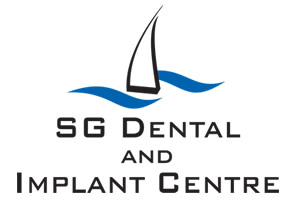Tooth Restoration In Cases Of Significant Damage Or Decay
A look at how dental crowns are widely used at our Burton Practice
With our modern diet being so high in sugars, including many ‘hidden ones’, it is especially important that we all take good care to keep our teeth clean and healthy. Failure to do so is likely to result in a number of problems that will need to be treated by a dentist. Although some teeth will require extraction, especially where there is long-term neglect, in most cases, restoration is the first thing we check in order to try to save the tooth.
We have mentioned before the importance of taking prompt action to see a dentist as soon as you notice a problem. By doing so, your tooth may be restored using a relatively minor treatment, such as a filling. Where a problem is ignored though, the decay may have become too extensive for a filling to provide the tooth with sufficient strength. There may also be scenarios where a tooth is badly broken by accident. In situations like these, the use of a dental crown is one of the most frequently used solutions to restore the tooth.
Tooth decay
Tooth decay is caused by bacteria entering the inner part of the tooth. This can occur when the enamel of our teeth become compromised through cracks, chips or enamel erosion caused by an acidic diet or wearing of the teeth through excessive brushing. Decay can spread quite quickly, and, if you don’t act soon enough, too much of the natural tooth may be affected for a filling to be practical and a crown may need to be used instead.
For a crown to be fitted to a decaying tooth, the infected material needs to be removed first of all. It may also be necessary to remove some of the healthy tooth too, in order to shape it so that the crown can be securely attached. Once fitted though, a crown will give the tooth a good level of strength. You should remember to keep your crown clean, along with the remaining natural tooth, as any further decay of the natural tooth may cause the bond between the tooth and crown to weaken.
Broken Tooth
The same applies to where a tooth is broken. You should always have this examined at Mike Allen’s Dental Practice as soon as possible. Once a tooth has become compromised in this way, further damage is likely unless treated quickly. Depending on the extent of the damage, a crown is often the most effective way of restoring a broken tooth.
Root canal treatment
Where the roots of a tooth have become infected, a root canal treatment is necessary. To remove the infected material from the tooth roots, the top of the tooth has to be removed. Once treated and filled, this leaves the tooth much weaker, and the addition of a crown to complete the treatment will help to provide sufficient strength for everyday use.
Dental implants
Dental crowns are also used in dental implant placement. The implant is, technically, the titanium screw like object that is placed into the jaw to replicate the role of a natural tooth root. This alone would not provide a natural complete tooth replacement though, and to complete the procedure, a crown will be attached to the implant via an abutment. This is the visible part of a dental implant procedure and the one that gives your new replacement tooth a natural look and feel.
About our crowns
The crowns that we use at Mike Allen’s Dental Practice are of very high quality. They are usually made from either porcelain or ceramic and are produced in a shade that matches your natural teeth. This gives them a natural, discreet appearance.
To produce the crowns, impressions and x-rays will be taken of your teeth, and these are used by the dental laboratory to produce your new crown. As these crowns can take a week or so to be made, you will usually be provided with a temporary crown in the meantime in order to protect your prepared tooth.
Once your final crown has been made and returned to our Burton dental clinic, the temporary crown will be removed and replaced by your new crown, using a special cement. This will securely bond the crown and tooth and will last for around ten years, providing that you look after it well. Whilst your crown should remain securely attached, there have been rare instances where a crown has become detached. In the unlikely event that this should happen to you, do not attempt to re-glue it on yourself. Instead, call us and explain the problem and we will reattach it correctly for you.
Whilst a crown, when used to repair a damaged or decayed tooth, offers an excellent level of strength, it does require the removal of some of your natural tooth. So where possible, we always advise patients to see us before any problem becomes significant. By doing so, a less extensive treatment may be sufficient to preserve the tooth.
For more information about crowns or any other procedure that we offer, please call Mike Allen’s Dental Practice on 01283 845345.
